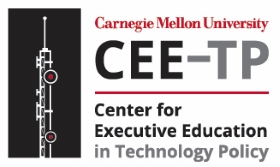Digital Trade: International Trade Rules for the Digital Economy
Instructors:
- Alexandre Mateus, Head of Sector for Digital Trade at the European Commission
- Brian Daigle, U.S. Department of State
This course focuses on how rulemaking on international trade seeks to promote and govern the development of digital trade. It examines current multi-lateral trade rules coming from the World Trade Organization (WTO), and how the WTO framework affects digital trade. It will cover the main rulemaking trends emerging from bilateral agreements. The course also covers ongoing efforts to develop a specific set of rules on digital trade that applies to a broad number of countries, such as the WTO’s Joint Statement Initiative on E-commerce.
Digital trade refers to international commerce (commerce of goods or services between different countries or customs areas) enabled by electronic means (by telecommunications and IT services). It includes online purchases of physical goods or of digital assets or services, whether those purchases imply a monetary transaction or not (e.g., advertiser-driven content). This course will discuss what digital trade is, how it affects all sectors of the economy, and why it is a growing source of economic development for many countries.
International rules on digital trade have the potential to influence how businesses conduct their activities across borders, and how national governments regulate the digital economy. Such rules concern a wide range of issues that affect every nation. The digital trade issues discussed in this course include online consumer protection, electronic trust and authentication, spam, network neutrality, government access to proprietary source code or algorithms, privacy and data protection, and international data flows. For each of these issues, the course will focus on the main aspects considered in the development of international trade rules and how those can impact both regulation at national level as well as business decisions of companies engaging in international trade.
To understand the emerging rules on digital trade, one must consider both multi-lateral rules that are intended for many or most nations, and bilateral rules that govern trade between trading partners. The principal source of multi-lateral rules for digital trade is the WTO. Although the WTO has not produced agreements that are specific to digital trade alone, the WTO framework does include rules for broader categories of trade, including trade in goods, trade in services, and intellectual property. This course will explain how rules in these broader areas affect digital trade.
This course will also discuss bilateral Foreign Trade Agreements (FTAs) in which rules on digital trade have been emerging. Examples of such FTAs include the US-Mexico-Canada Agreement (USMCA); the Comprehensive and Progressive Agreement for Trans-Pacific Partnership (CPTPP); the EU-Canada Trade Agreement (CETA) or the EU-Japan Economic Partnership Agreement. These bilateral agreements often take inspiration from multi-lateral work done, such as at the United Nations Commission on International Trade Law (UNCITRAL), which is the Model law on Electronic Commerce. However, the result can be a patchwork of rules adapted to the specific interests of the involved countries.
Finally, this course will focus on ongoing efforts to produce a specific set of digital trade rules that applies to a broad number of countries, such as the WTO’s Joint Statement Initiative on E-commerce. The course will examine the rationale behind these efforts: how navigating different rules in FTAs represents a level of effort and risk that can deter companies from participating in international digital trade, especially Small and Medium Enterprises (SMEs) or companies from less developed countries. The course will also focus on how such an agreement on specific digital trade rules with broad geographical coverage is expected to improve legal certainty for operators involved in electronic transactions globally.
- Target audience: This course is intended for people with all levels of technical or legal expertise from government, industry, or non-governmental organizations, who are involved in policy analysis or development in fields affected by digital trade (i.e., international commerce enabled by electronic means).
- What you will learn: Upon completing the course participants will have a greater understanding of international trade rules in general, and specifically digital trade rules, and how they influence and are influenced by legislation and regulation at national level. Participants will understand the practical implications of developing international trade rules covering different areas of digital policy, and how ongoing international negotiations can impact policymaking at national level.
- Prior knowledge: No prior technical or policy knowledge is required. Every participant will bring their own unique expertise and experience to the discussion.
